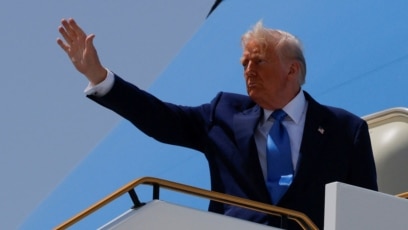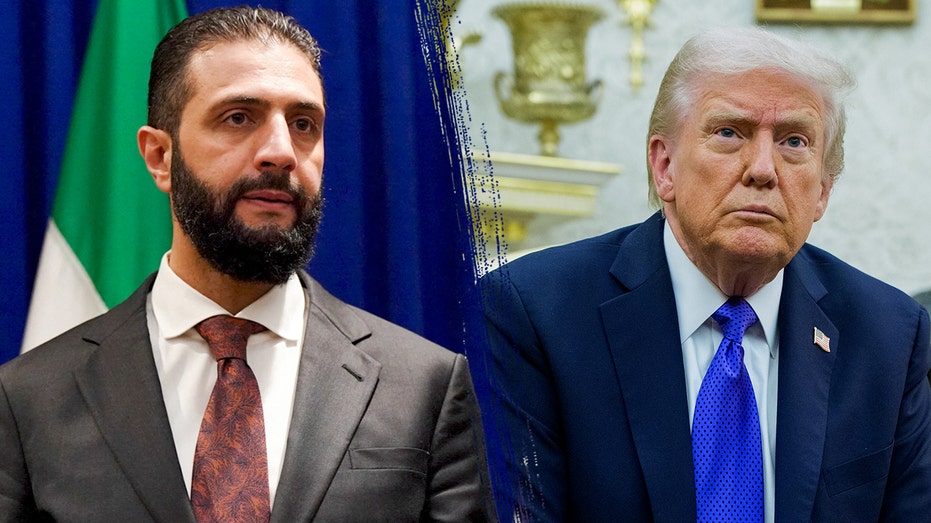
Historic Meeting: Trump and al-Sharaa Set to Discuss New Diplomatic Era
In a notable diplomatic shift, President Donald Trump is scheduled to meet with Syrian President Ahmed al-Sharaa on Monday. This high-profile meeting marks a groundbreaking attempt to explore Syria’s potential return to the global diplomatic stage after years of conflict and international isolation.
A New Chapter in U.S.–Syria Relations
This encounter signifies a pivotal moment in U.S.–Syria relations, a relationship characterized by over a decade of tension and animosity. As diplomatic initiatives resurface, a senior administration official has indicated that the focus will center around critical areas such as counterterrorism, economic development, and wider regional peace and security.
Syria Joins the Global Coalition Against ISIS
One of the key announcements during this meeting will be Syria’s official membership in the Global Coalition to Defeat ISIS, making it the 90th member of the coalition. In a collective effort, Syria will collaborate with the U.S. to eliminate remaining ISIS threats and prevent the infiltration of foreign fighters.
Policy Shifts Leading to Change
This meeting follows significant shifts in U.S. policy, including the recent U.N. Security Council decision to lift sanctions imposed on President al-Sharaa and the Syrian interior minister. Both officials had previously faced sanctions for their connections to al Qaeda and ISIS, classified as Specially Designated Global Terrorists.
Al-Sharaa’s Recent Plea for Assistance
Approximately six weeks prior, al-Sharaa made headlines by addressing the U.N. General Assembly — a first for a Syrian head of state in sixty years. During his address, he called on Western nations to lift sanctions and assist with the reconstruction of Syria. Following this, an administration official disclosed the U.S.’s intentions to alleviate economic restrictions and facilitate Syria’s operations at its Washington Embassy. This move is expected to enhance cooperation in counterterrorism and economic initiatives.
Addressing the Caesar Act Sanctions
Syria’s officials are advocating for a comprehensive reassessment of the Caesar Act sanctions, which restrict U.S. commercial relations with Damascus. The Trump Administration has signaled support for the complete repeal of these sanctions, viewing it as a strategy to stimulate economic revivification in Syria.
Political Support for Diplomatic Engagement
Rep. Abe Hamadeh, a Republican from Arizona, has framed the meeting as a vital opportunity to draw a line under years of conflict. Hamadeh has visited Damascus to ensure that missing Americans remain a priority and to advocate for the rights and protection of minorities within Syria.
Concerns from Christian Leaders
There is a growing call from Christian leaders urging President Trump to prioritize minority rights and security issues during his discussions with al-Sharaa. Among their requests, they emphasize the need for establishing a humanitarian corridor intended to assist vulnerable minority groups within Syria.
U.S. Interests in Regional Stability
Ahmad Sharawi from the Foundation for Defense of Democracies has highlighted that the U.S. aims to leverage the upcoming meeting to bolster stability and mitigate Iran’s influence in the region. While he raised concerns regarding Syria’s centralized political system, he recognized al-Sharaa’s role as a significant figure in these diplomatic efforts.
Meetings with Other Global Leaders
Al-Sharaa’s recent interactions with President Vladimir Putin in Russia demonstrate his pragmatic outlook, suggesting a readiness to secure support from nations beyond the West, should their needs continue to be unmet.
Strategic Discussions on Defense
Rep. Hamadeh also underlined the risks and opportunities that could arise during CENTCOM hearings and legislative actions aimed at cultivating defense partnerships with Syria. He emphasized that active monitoring is needed to manage adversaries, including ISIS, Iran, Russia, and China.
Syrian Activists Support Diplomatic Efforts
Syrian-American activist Hicham Alnchawati has expressed that the anticipated visit is seen positively among Syrians who are hopeful for a brighter future. He emphasized the need for cooperation with the U.S. to reinforce stability and diminish the influence of both Iran and Hezbollah in the region.
Debates Over Sanctions and Future Cooperation
Recent discussions within the U.N. and changes in U.S. sanctions policy have ignited debates surrounding the legitimacy of recognizing a former jihadist commander. Officials face the challenge of balancing accountability for previous abuses while exploring potential incentives for cooperation.
Policy Risks and The Path Forward
Sharawi has cautioned against potential policy risks, warning that the political fallout of missteps could be substantial. As the meeting approaches, the outcomes could set the stage for a new diplomatic landscape involving Syria, one that may redefine long-standing geopolitical tensions in the Middle East.
















